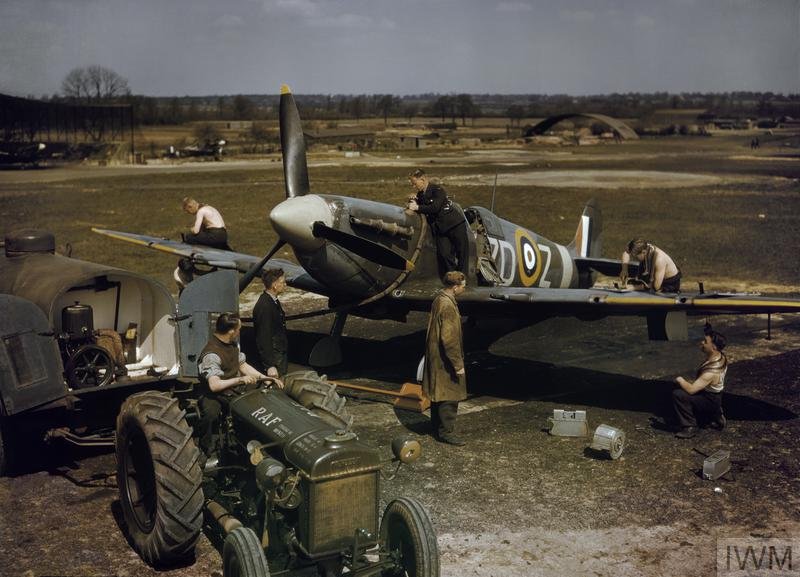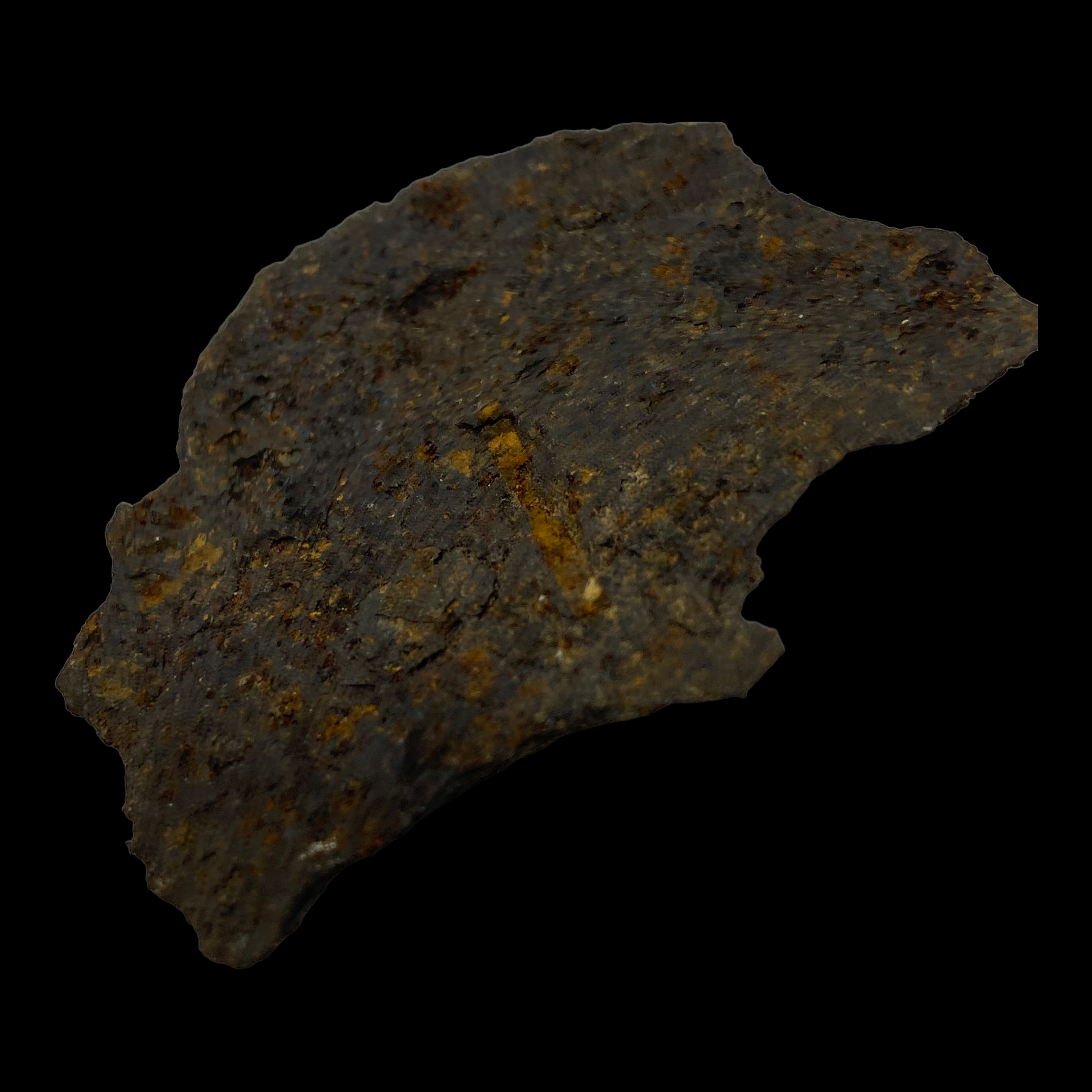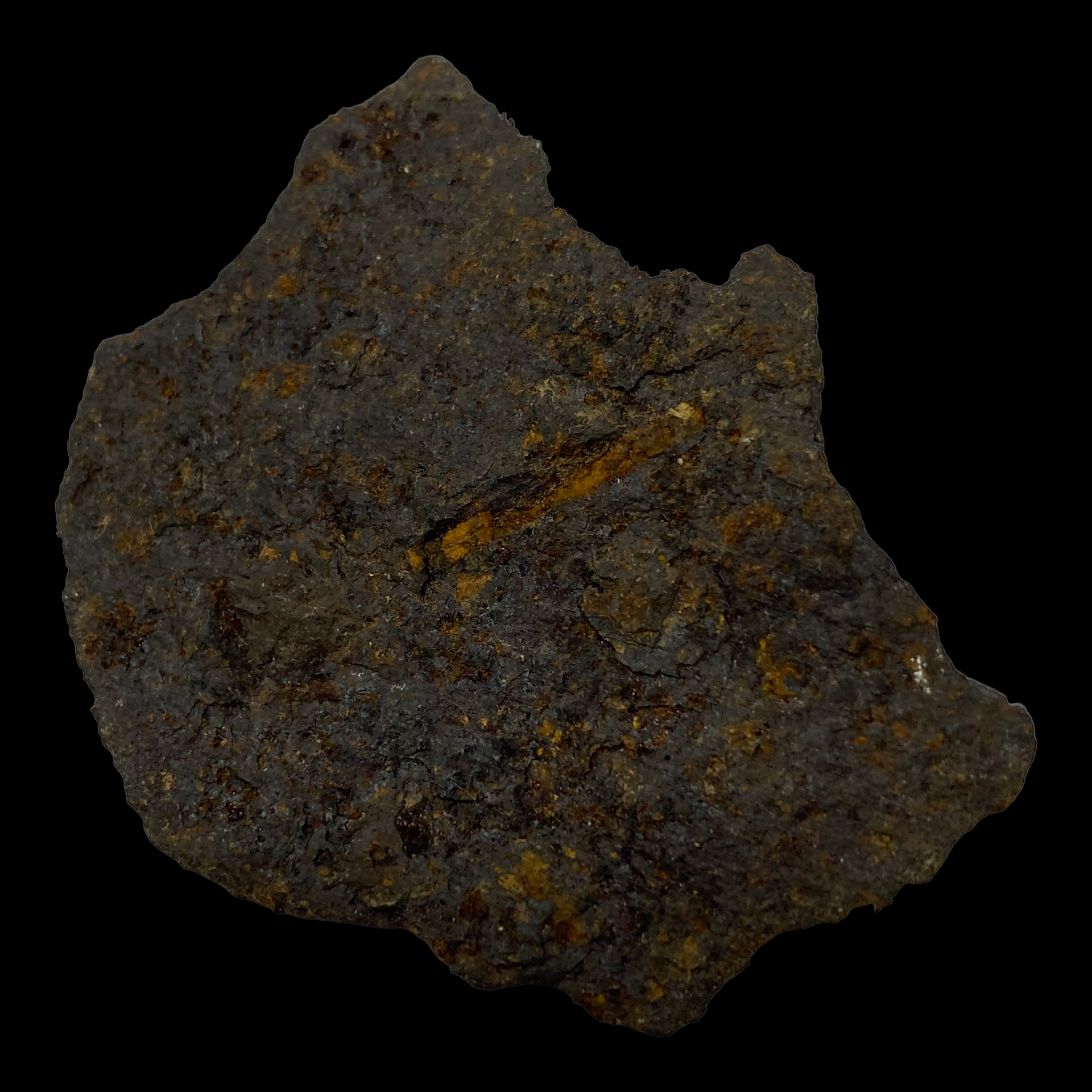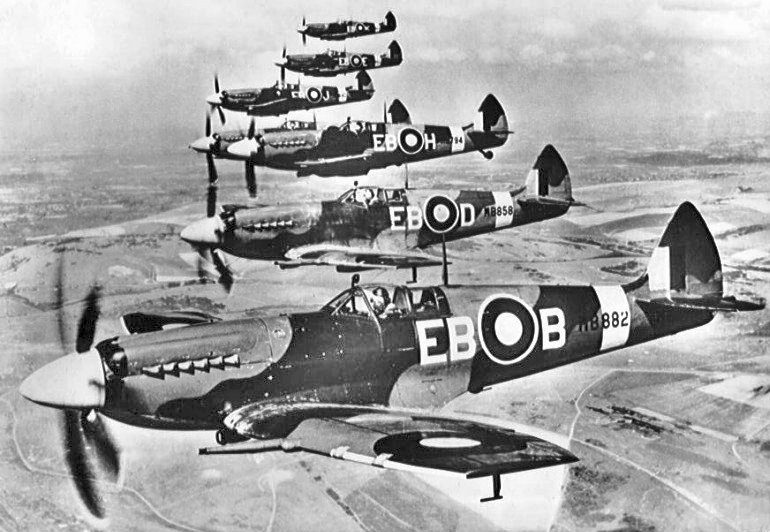RARE! WWII 1940 Battle of Britain Sgt. D F Corfe's SHOT DOWN R.A.F. British Spitfire (R6603) Wreckage Fragment - Recovered Denge Wood, Petham










RARE! WWII 1940 Battle of Britain Sgt. D F Corfe's SHOT DOWN R.A.F. British Spitfire (R6603) Wreckage Fragment - Recovered Denge Wood, Petham
Comes with hand-signed C.O.A.
METAL AIRCRAFT PLATING
This incredible rare and museum-grade WWII artifact is a Battle of Britain R.A.F. aircraft wreckage fragment from a British Spitfire (ID Number: R6603) of No. 66 Squadron.
This Royal Air Force British Spitfire was piloted by Sgt. D F Corfe was shot down during an air-to-air dogfight by a German Me109 on September 18th, 1940 this time over the Canterbury area, in Spitfire R6603. Corfe baled out and was admitted to Chartham Hospital, with injuries. His Spitfire aircraft crashed at Denge Wood, Petham.
Over the course of his service in the R.A.F. Sgt. D F Corfe served valiantly in combat against German attacking planes during the Battle of Britain. Sgt. D F Corfe was shot down multiple times…bailing out and surviving each time. His luck, however, would soon run out as Sgt. D F Corfe was KILLED IN ACTION on April 25th, 1942.
On 25th April 1942 Corfe, with five other Hurricanes, was sent to intercept Ju88s, Ju87s and Me109s over St Paul's Bay. He became separated from the other Hurricanes and was attacked by four Me109s. Corfe broke away and raced for cover between some hills. He was then hit by local ground fire, losing part of his wing. The Hurricane, BE708, crashed into rocks and exploded on impact, killing Corfe.
This artifact of Sgt. D F Corfe’s Spitfire that was shot down Denge Wood, Petham is a testament to the R.A.F. pilot that gave their lives in the defense of Britain. The large engine from Sgt. D F Corfe British Spitfire (ID Number: R6603) of No. 66 Squadron is currently on display in the Royal Air Force Museum in London. These smaller and medium-sized fragments as from the same salvage efforts and aircraft.
Full Combat History of Sgt. D F Corfe:
Douglas Frederick Corfe was born on 24th August 1918, the son of Frederick Corfe and Charlotte Corfe (nee Bannister) of Meols, Hoylake, Cheshire.
He attended Rock Ferry Higher Grade School before going on to Park High School, Birkenhead in September 1929. He gained his School Certificate in 1934 and left on 4th April 1935 to begin work as a clerk with the Mersey Docks and Harbour Board in Liverpool, where his father was employed in a similar capacity.
In 1936 Corfe joined the Auxiliary Air Force to serve on the ground staff of the newly-formed 610 Squadron at Hooton Park. He transferred to the RAFVR in late 1938 to begin pilot training.
He was mobilised on 24th August 1939 and posted to 2 FTS Brize Norton on 7th October on No. 42 Course, which ran from 9th October 1939 to 23rd March 1940. Corfe completed his training and rejoined 610 Squadron (Spitfires), then at Wittering, as a Sergeant-Pilot.
He was then posted to 6 OTU Sutton Bridge on 28th April 1940. After converting to Hurricanes he was posted to 73 Squadron at Gaye, east of Paris in France.
On 25th July he rejoined 610 Squadron, then based at Biggin Hill. Corfe claimed a Me109 destroyed on 14th August. He was shot down in flames on the 22nd during a combat with Me109s over Folkestone and baled out. His Spitfire, R6995, crashed and burned out at Hawkinge.
Corfe was posted to 66 Squadron at Kenley on 10th September. He was again shot down by Me109s on the 18th, this time over the Canterbury area, in Spitfire R6603. Corfe baled out and was admitted to Chartham Hospital, with injuries. The aircraft crashed at Denge Wood, Petham.
In April 1941 Corfe was serving with 229 Squadron at Speke. The squadron embarked on HMS Furious in May en route for the Middle East. On the 21st six Hurricanes were flown to Malta, leaving for Mersa Matruh later the same day. The Furious could not dispatch the remaining Hurricanes of 229, having been too long in hostile waters.
It returned to Gibraltar, sailed again in early June and 229 flew off to Malta on the 6th. The Hurricane II's were left in Malta and the 229 pilots took Mark I's on to Mersa Matruh the next day. Pending the arrival of squadron ground crews, the 229 pilots were attached to 73, 6 and 208 Squadrons in the desert for operations.
On 19th April 1942 Corfe flew one of six Hurricanes IIc's from Gambut the 720 miles across the sea to Malta, to join the nineteen other Hurricanes of 229, which had arrived in two groups, on 27th March and 6th April. On 25th April 1942 Corfe, with five other Hurricanes, was sent to intercept Ju88s, Ju87s and Me109s over St Paul's Bay. He became separated from the other Hurricanes and was attacked by four Me109s. Corfe broke away and raced for cover between some hills. He was then hit by local ground fire, losing part of his wing. The Hurricane, BE708, crashed into rocks and exploded on impact, killing Corfe.
At the time of his death Corfe was a Warrant Officer. He is buried in Capuccini Naval Cemetery.